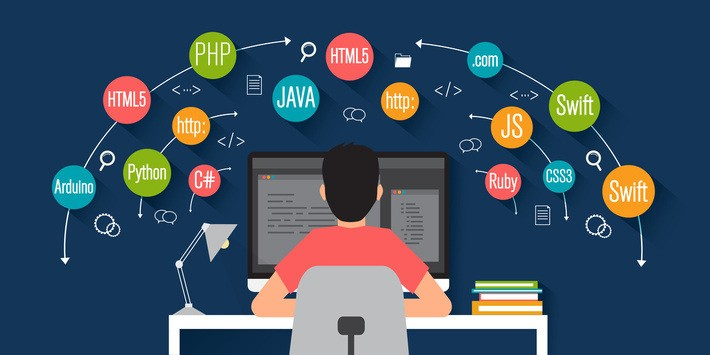
In today’s world, programming is everywhere. From the apps on our phones to the websites we visit and the technology we use daily, programming is what makes everything run smoothly. It’s an essential skill that powers innovation, drives businesses, and connects people worldwide. Learning to program opens doors to many career paths, allowing people to create solutions for real-world problems and bring new ideas to life.
Popular Programming Languages and Their Uses
| Programming Language | Main Role |
|---|---|
| Python | Great for data analysis, artificial intelligence, web development, and automation. Known for being beginner-friendly. |
| JavaScript | Powers most websites. Essential for web development, especially for creating interactive front-end applications. |
| Java | Used in enterprise applications, Android development, and large systems. Known for stability and cross-platform compatibility. |
| C++ | Important in game development, high-performance applications, and system software. Known for speed and control. |
| Ruby | Known for its simple syntax and used mainly in web development, particularly with the Ruby on Rails framework. |
| PHP | Widely used for web development. Powers many websites and content management systems like WordPress. |
| Swift | Apple’s language for iOS and macOS development. Used for building apps for iPhones, iPads, and Macs. |
| R | Focused on statistical analysis and data visualization. Used heavily in data science and research. |
| SQL | Essential for managing databases. Used to store, retrieve, and analyze data in applications. |
Key Steps to Mastering a Programming Language
- Understand the Basics: Start by learning the fundamentals: syntax, variables, data types, and control structures. Strong basics make advanced concepts easier to learn.
- Practice Consistently: Programming is best learned through practice. Try to code every day, even if it’s just a small project or exercise. Consistent practice builds confidence and skill.
- Work on Real Projects: Apply your knowledge by building real projects. This could be a website, a small game, or a tool that solves a personal problem. Real projects help you see how different parts of a language work together.
- Learn Debugging Techniques: Bugs are a natural part of programming. Knowing how to debug your code and fix errors will save you time and make you a more effective programmer.
- Understand How to Use Documentation: Every programming language has official documentation, which is like a guidebook. Learning to use this resource will help you solve problems and learn new features on your own.
- Join a Community: Programming communities are great for support, sharing knowledge, and staying motivated. Forums like Stack Overflow or local coding groups can be incredibly helpful.
- Stay Curious and Keep Learning: Technology evolves fast. To stay relevant, always be willing to learn new skills, tools, and techniques. Continuous learning is key to mastering any programming language.
Mastering a programming language takes time, but by following these steps, anyone can build a solid foundation and become a confident coder.

